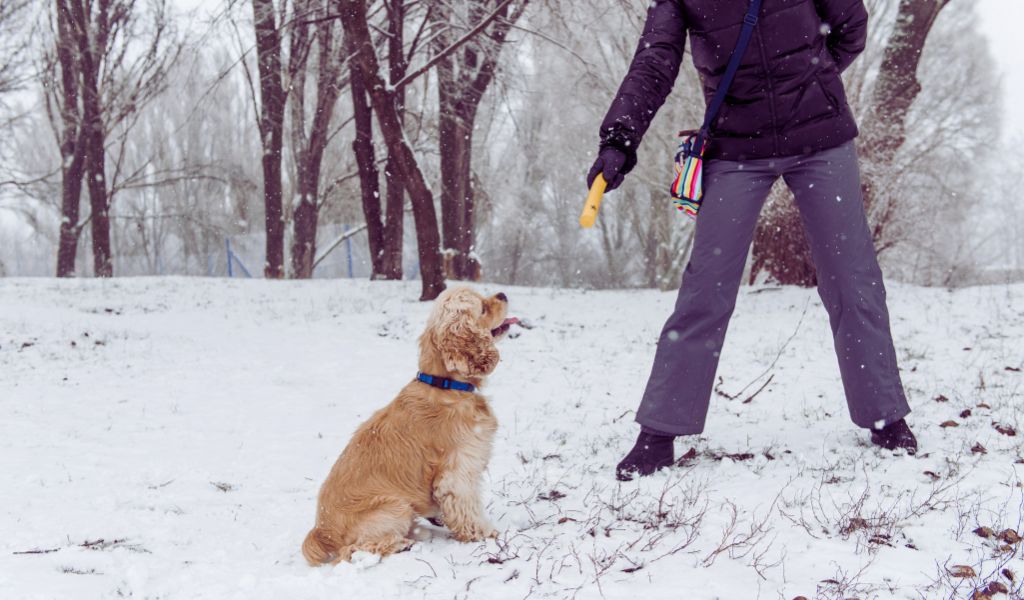Cocker spaniels are known for their playful and energetic nature, making them popular pets for many families.
While they are generally easy to train, it’s essential to start their training at the right time to ensure they grow into well-behaved and obedient dogs.
In this article, we will discuss when the best time is to start training your Cocker spaniel and the important factors to consider.
From basic obedience commands to socialization and house training, we will provide you with a comprehensive guide to help you raise a well-mannered and happy Cocker spaniel.
Whether you have just brought home a new puppy or have an older Cocker spaniel that could use some training, it’s never too early or too late to start. Training should begin as soon as your dog has settled into his new home and should begin with the introduction of basic commands and developing good habits.
Crate training your Cocker spaniel
This has different meanings to different people but, from my perspective, crate training means providing your spaniel with a safe place where he can rest, sleep and have a space of his own.
It does not mean using a crate for ‘house training‘ or as something to lock a dog into to keep him out of the way.
House training is dealt with in a totally different, dog friendly way and you can see how to do this in this article on ‘housetraining a puppy.
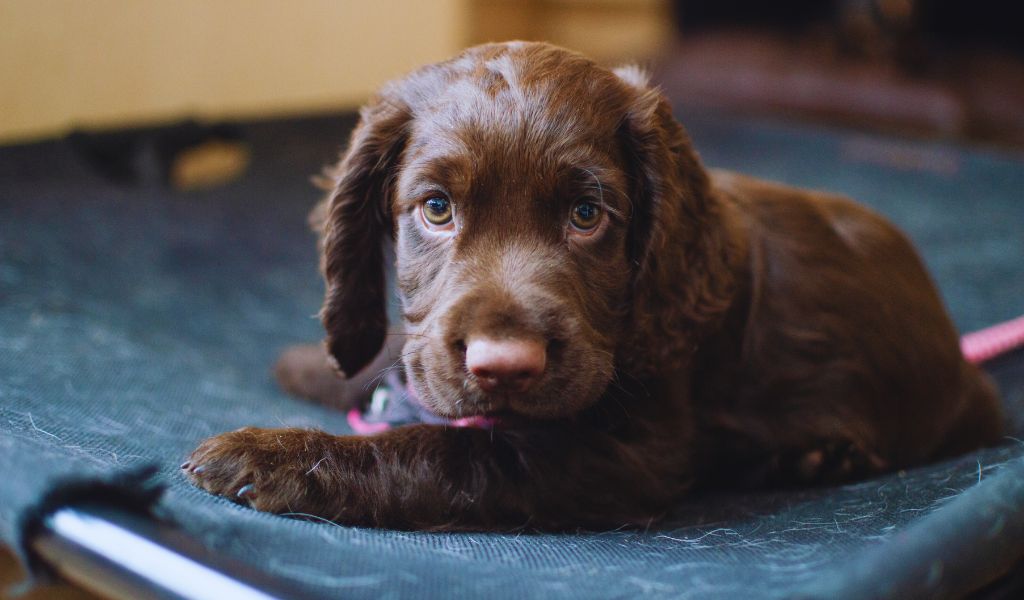
Choosing the right crate
Before you embark on crate training, selecting an appropriate crate for a Cocker spaniel is crucial.
Opt for a size that allows your puppy to stand and turn around but isn’t too spacious that they will feel insecure.
There are hundreds of different types of crates available, from designer style ones that resemble home furniture through to the more basic metal ones.
If budget is a concern, consider a metallic crate with a divider, which can be adjusted as your puppy grows.
Remember, ease of cleaning is essential, your spaniel’s space needs to be kept clean.
Step-by-step crate training
Start by making the crate inviting with a comfy bed and their favourite toys.
Introduce your Cocker spaniel to the crate without forcing them. Place treats inside to encourage entry, gradually moving them deeper into the crate.
Initially, leave the crate door open, allowing your puppy to explore freely. As they become comfortable, begin closing the door for short periods while remaining nearby.
Gradually increase the duration, starting with 30 minutes and extending it over time.
Key Points to Remember:
Never use the crate for punishment.
Limit crate time – a general rule is one hour for every month of age, up to a maximum of five hours.
If your puppy shows signs of discomfort, let them out but don’t respond to whining, as this could reinforce the behaviour.
Socialisation and basic obedience training
Building a Foundation
Introduce your Cocker spaniel to various environments and people.
This not only improves their social skills but also helps prevent anxiety and fearfulness. Remember, a well-socialised dog is a confident and happy dog.
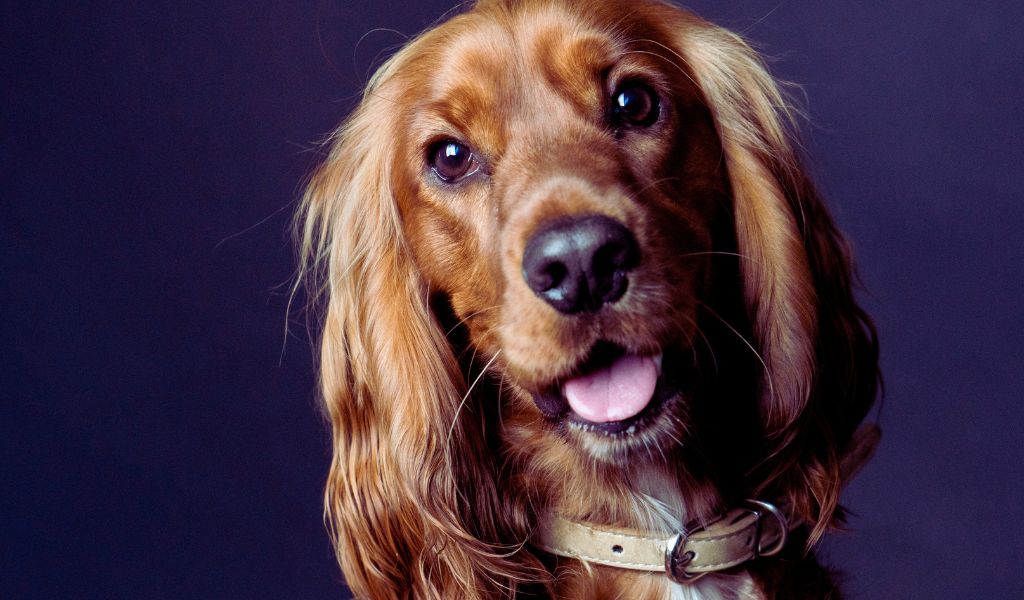
Essential Commands
Start with fundamental commands like ‘Sit‘, ‘Stay’, and ‘Come’. These commands not only promote good behaviour but also enhance your dog’s safety.
The ‘Sit’ Command
This foundational command establishes your leadership and aids in impulse control. Use a treat to guide your dog into a sitting position, rewarding them once they comply.
The ‘Stay’ Command
Teach your Cocker spaniel to stay in one place until you give them the cue to move. This command is invaluable for managing their behaviour in various situations.
The ‘come or recall’ command
Essential for safety, the ‘Come’ command ensures you can recall your dog in potentially dangerous situations.
Begin training in a distraction-free environment, gradually introducing more challenging scenarios.
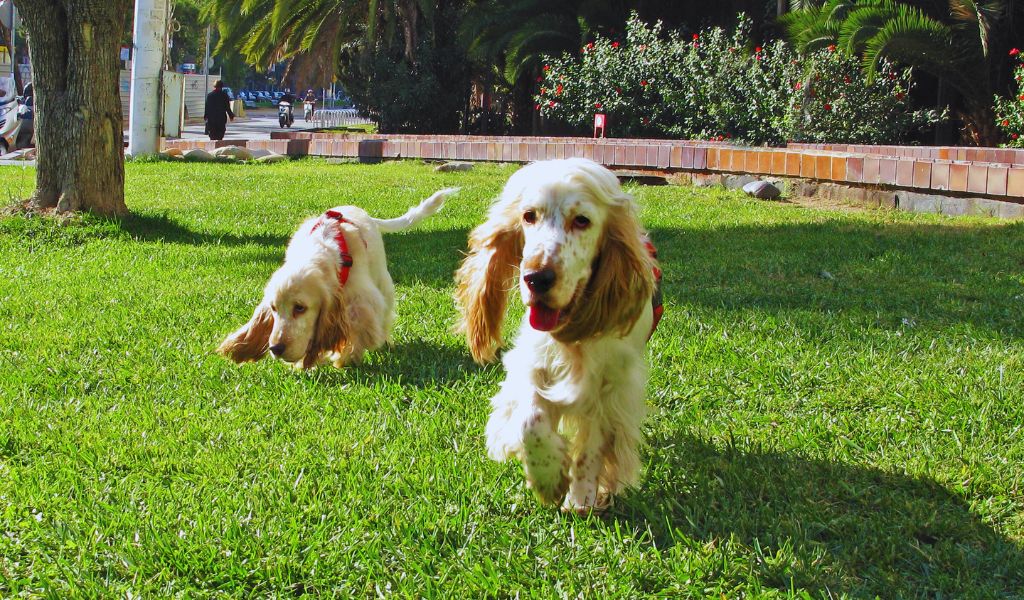
Training techniques
Utilise positive reinforcement, such as treats and praise, to encourage desired behaviours.
Clicker training can be particularly effective, marking the exact moment of the desired behaviour with a distinct sound.
A balanced approach, combining rewards with gentle correction, is key to successful training.
Addressing behavioural traits
Cocker spaniels are known for their stubbornness, which can pose a challenge during training.
Consistency and patience are vital. Establish yourself as the pack leader and set clear boundaries.
Engage your dog in fun activities to maintain their interest and focus during training sessions.
Managing distractions
Begin training in a quiet environment, gradually introducing distractions. This helps your dog learn to focus on your commands, regardless of external stimuli.
Overcoming fear and anxiety
Address any fear or anxiety issues before advancing in training.
Desensitisation, or gradual exposure to the trigger, can be an effective strategy.
Positive reinforcement during this process is crucial.
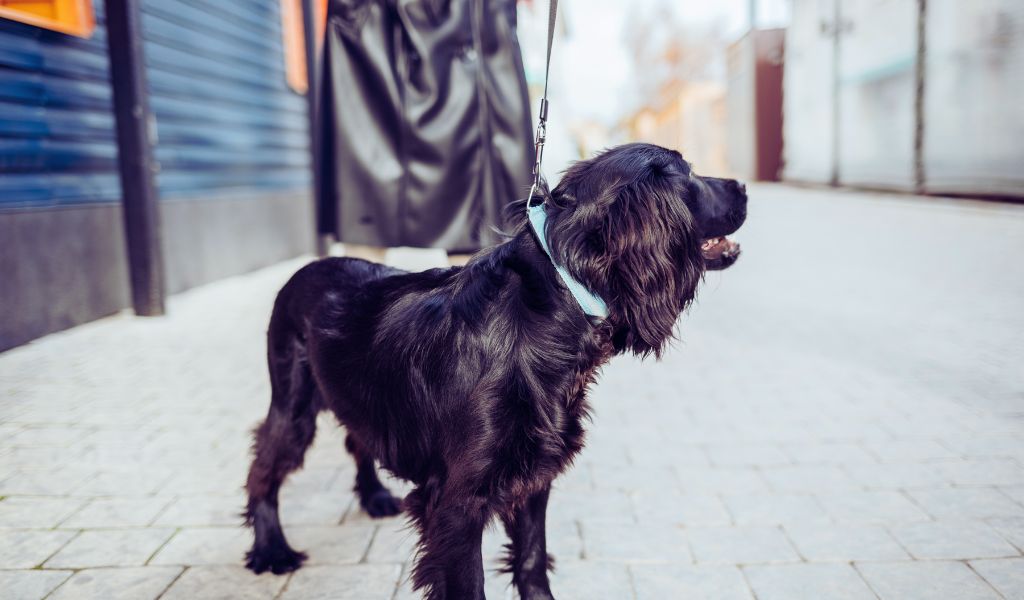
Mastering Lead Training
Starting with the right gear
If you decide on a collar then a comfortable, easy-to-put-on collar is essential for lead training.
While your Cocker Spaniel puppy may initially resist wearing a collar, distracting them during mealtimes can help.
Ensure the collar is snug but not too tight – you should be able to fit two fingers between the collar and your puppy’s neck.
Gradual introduction to the lead
Many spaniel owners avoid collars and simply opt for a slip lead which is safer for an active, working dog.
Choose a lightweight lead that is suitable for a medium-sized breed.
You should always avoid retractable leads, as they can encourage pulling and can contribute to unsuitable behaviour when both on and off the lead.
Begin with short walks, teaching your Cocker spaniel not to pull by stopping every time they tug on the leash.
Resume walking once they calm down, teaching them to walk at your pace.
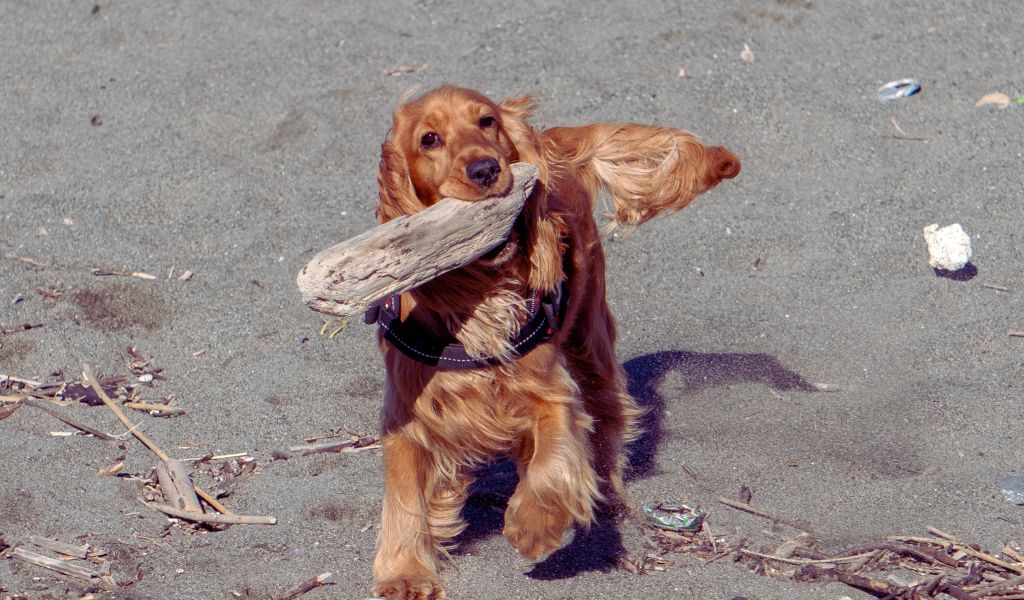
Ensuring adequate exercise and play
Exercise needs
Cocker spaniels are energetic and require ample exercise.
For the first six months, exercise should be gentle, gradually introducing more rigorous activities.
Adult Cocker spaniels need up to an hour of exercise daily. Incorporate a variety of activities to keep their routine interesting and engaging.
Interactive play and mental stimulation
A big problem for many dogs, Cockers included, is a lack of mental stimulation, which is often displayed in anxious dogs and dogs that have behavioural issues.
All dogs enjoy mental activities and these can be things such as playing fetch, hunting for hidden items, going for a long, exciting ‘sniff walk’ where they can explore and investigate new environments and smells, meeting other dogs and people and, generally being allowed to be dogs.
Cocker spaniels thrive on mental challenges. Interactive games like fetch or scent trails in the garden keep their minds active and reduce the likelihood of destructive behaviour.
Safe, off-lead play in a secure area allows them to explore and expend energy in a controlled environment.
FAQs. When to start training a Cocker spaniel
When is the right age to start training a Cocker spaniel puppy?
The puppy training process can begin as early as 8 weeks old. This is an ideal age to start training your cocker spaniel and introduce basic obedience and house training.
Can I start training a Cocker spaniel before 8 weeks of age?
It’s important to wait until your puppy is at least 8 weeks old before starting any formal training. Before this age, the pup is still developing both physically and socially.
How should I begin training my Cocker spaniel puppy?
It’s vital to train your puppy using positive reinforcement and gentle methods. Start by teaching your puppy simple commands such as “sit” and “stay,” and gradually progress to more advanced training sessions.
What training methods work best for Cocker spaniels?
When training a Cocker spaniel, it’s essential to use positive reinforcement techniques. Incorporate obedience and house training with puppy training to ensure a well-rounded approach.
Should I consider professional dog training for my Cocker spaniel?
Consider seeking advice and assistance from a professional dog trainer, especially if you’re new to training Cocker spaniels. They can provide valuable information and advice to help you and your pup succeed.
When to start gundog training for a working Cocker spaniel?
Gundog training can commence at around 6–12 weeks of age, but it is important to start with basic obedience training before moving on to specific gundog training.
Introducing simple commands and building a strong relationship with the dog are crucial in the early stages of training.
As the dog grows and develops, more advanced gundog training techniques can be introduced to help them become proficient in hunting and retrieving.
Training your Cocker spaniel, whether a playful puppy or an older dog, is a journey that requires patience, consistency, and positive reinforcement.
Starting as early as 8 weeks old with basic obedience and gradually introducing more complex commands and socialisation skills lays the foundation for a well-behaved and happy canine companion.
Remember, the key to successful training lies not only in the techniques used but also in understanding and catering to the unique personality and needs of your Cocker spaniel.
By incorporating the guidance from this article, you can ensure a rewarding and fulfilling relationship with your pet, filled with love and mutual respect.

